Covid-19: Former Gurkhas speak of struggles during pandemic
- Published
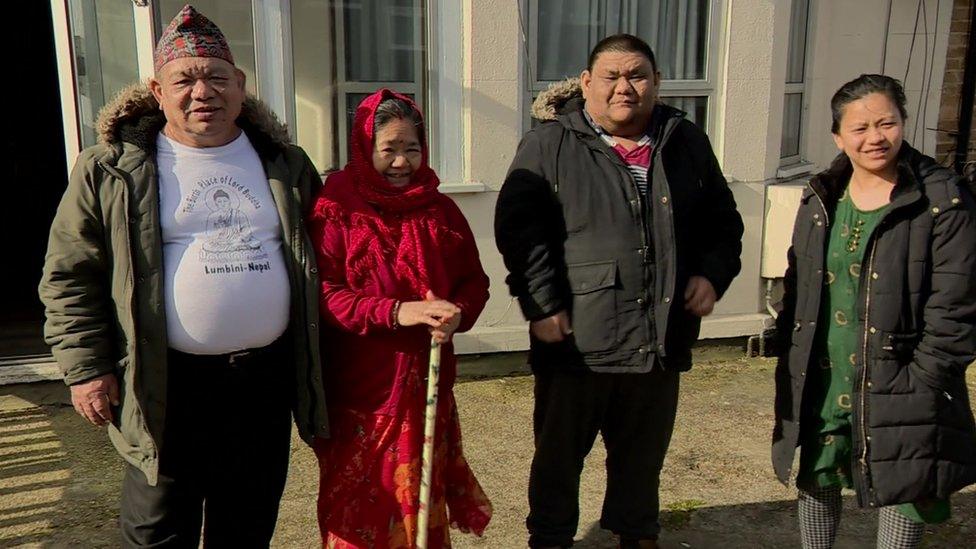
Former Gurkha Krishna Gurung (left) said lockdown had been "so difficult" for him and his family
Gurkha soldiers, recruited directly from Nepal, have fought for the British Army for more than 200 years.
Current serving soldiers have been active in the fight against coronavirus carrying out Covid swab tests and helping to build the Nightingale hospitals.
Yet a generation of older Gurkhas say they have been hit hard by the pandemic.
Former Gurkha and campaigner Gyanraj Rai said he had known more than 100 Gurkha veterans and family members across the country who had died with Covid-19.
"Some of the people I have known have still not been buried. It's been a very sad time," he said.
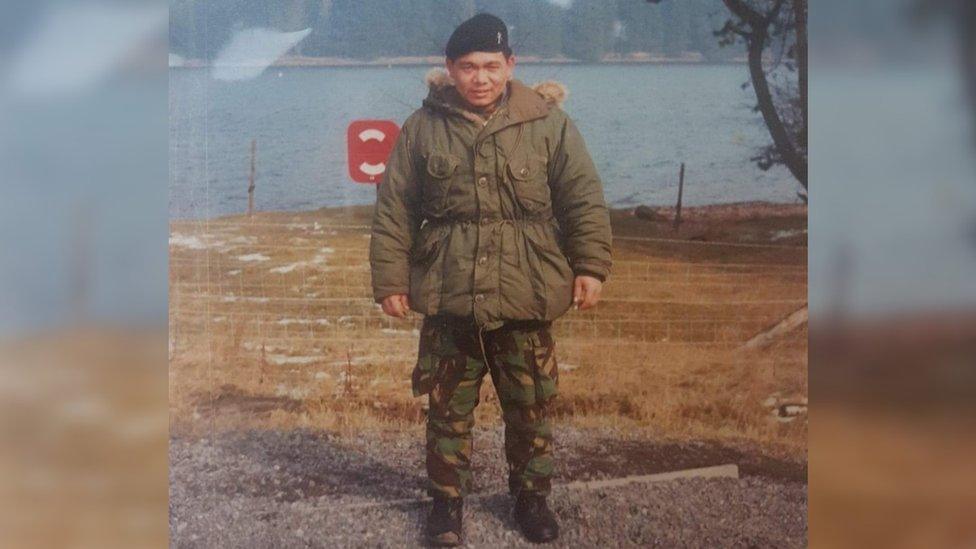
Krishna Gurung served 16 years in the 6th Gurkha Rifles regiment
Krishna Gurung, who served 16 years in the 6th Gurkha Rifles regiment, also said lockdown had been difficult for his family.
His wife is in ill-health, while his son has learning difficulties and is severely asthmatic.
Lockdown has meant his son has had to stay home all day, which Mr Gurung said has affected his mental health.
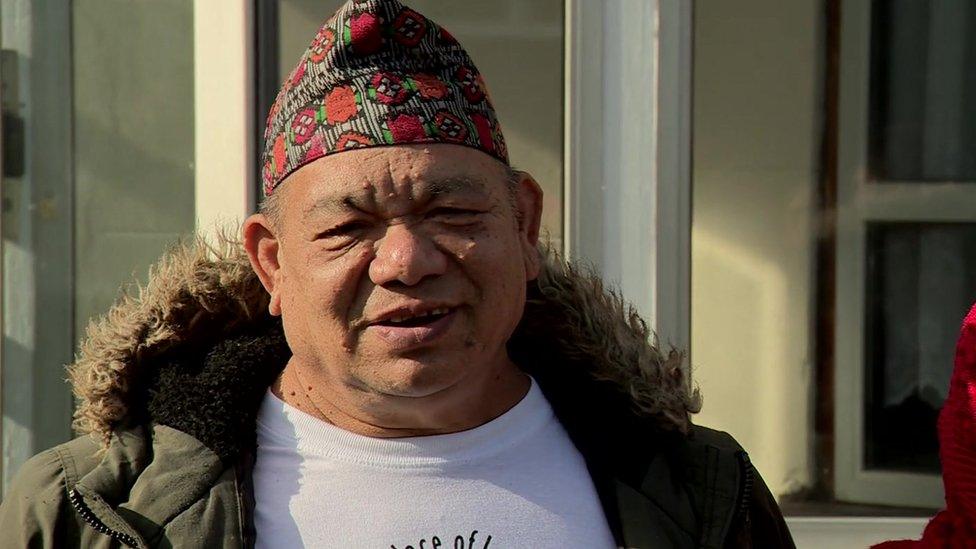
Krishna Gurung's wife is in ill-health, while his son has learning difficulties and is also severely asthmatic
He has turned to Skills and Care charity for its help. It offers outreach services to older people in south-east London boroughs while connecting the Nepalese community.
"In the first lockdown, we could see they were struggling so we took them food supplies and face masks," charity co-owner Sonia Thapa said.
"Recently, we took Krishna's wife to the hospital and translated for her when she spoke to the doctors."
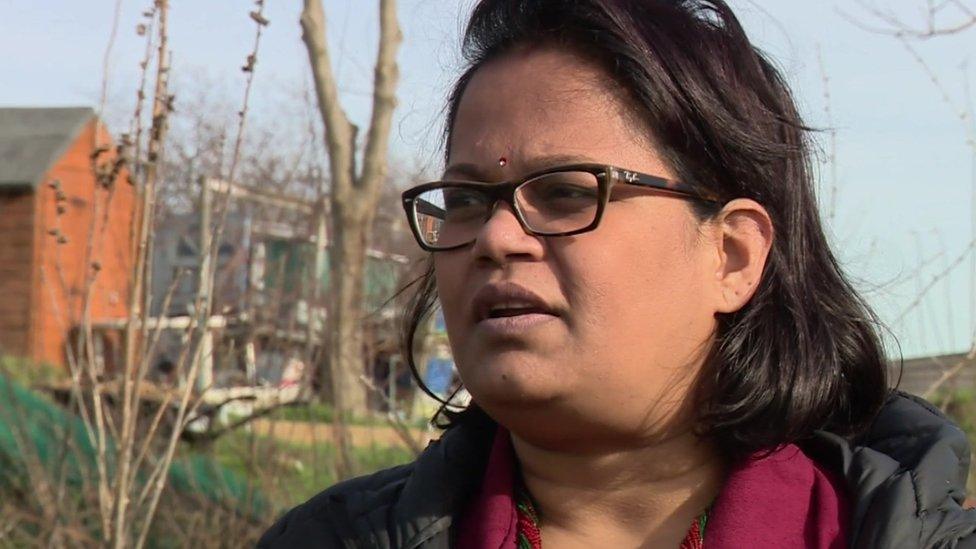
Charity manager Sonia Thapa says Gurkhas are "vulnerable people" who are "often exploited"
Mrs Thapa said Gurkhas were "vulnerable people" who were "often exploited".
"Even at the height of the pandemic, we had Gurkhas being kicked out of their homes by private landlords so we had to get them emergency housing," she recalls.
She said remote hospital appointments and digital apps had also created difficulties for the older generation.

Woolwich has a strong military history and the area is home to hundreds of former Gurkhas and their families.
Small groups of Nepalis are often seen chatting in the town square.
Many of them live in privately-rented multiple occupancy homes sharing a bathroom and kitchen, while younger family members work in lower-paid jobs such as carers or kitchen staff.
Former soldiers and their families who settled in the UK were, in some cases, reminiscent of the Windrush scandal and were threatened with deportation.
Following a high-profile campaign backed by actress Joanna Lumley in 2009, all Gurkha veterans who retired before 1997 and had served at least four years were given residency rights.
However, they were not given an equal pension rights, and the high cost of living in the UK means they often struggle to make ends meet.
The Ministry of Defence said it "greatly values" Gurkhas' contribution to the British Army and is "looking into pension differences".
A spokesman said the department ensures Gurkhas are supported with a "generous pension and medical care" when they leave.
- Published30 December 2020
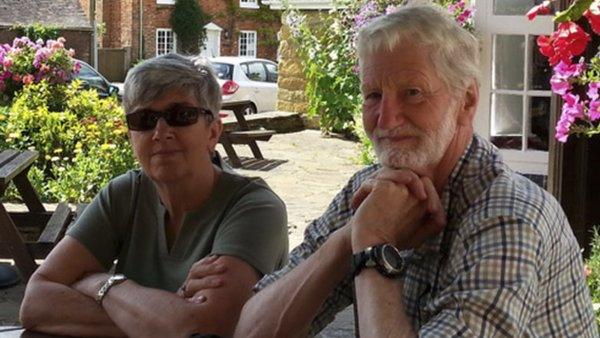
- Published27 July 2010